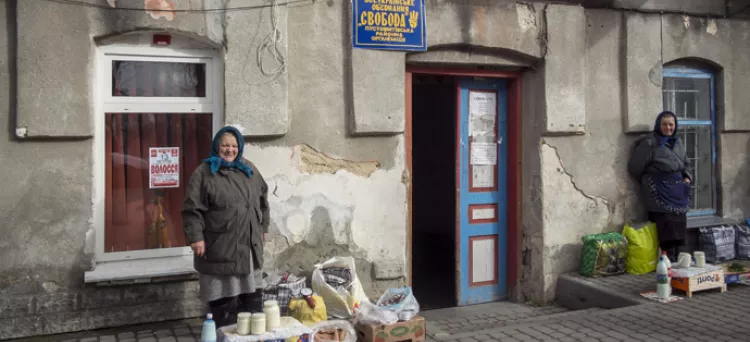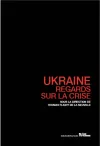No one wants to see Ukraine default – Swiss banker
As Ukraine’s economy spins towards default, investors and bankers worry the financial turmoil will spill over into global markets, a scenario “nobody wants to deal with,” Arnaud Leclercq, Group Managing Director at Lombard Odier, told RT.
“The situation in the country is already in turmoil, very imbalanced and if you add to that a default, it would probably be a road to a much worse case scenario, that obviously nobody wants,” Leclercq said.
A Ukraine default will happen when the government announces it can no longer meet its debt obligations.
“Nobody would want to deal with that, because it will trigger a number of other consequences for the country itself. A ‘domino effect’ and a social effect,” Leclercq said.
Arnaud Leclercq is an expert in Russia and CIS markets, and has traveled to, and worked in Moscow since the age of 25, when he set up a real-estate consulting firm in the 90s. He experienced at first hand the 1998 default and the cash crisis, when the value of the ruble plummeted as the Central Bank could no longer prop up the currency with interventions.
"Ukraine is between Europe and Russia geographically, culturally and in number of other regards.We believe that if any solution is found it has to be found jointly. Just for common sense, for historical reasons and for financial reasons as well,” said Leclercq.
Ukraine’s Central Bank halted currency interventions in February. As a result, the hryvnia has slid 20 percent against the dollar this year. However, continuing to prop up its overvalued currency is no longer an option for Ukraine, as its treasury is nearly empty, with foreign currency reserves close to $15 billion.
If Ukraine defaults and the hryvnia collapses like the ruble did in 1998, inflation is expected to soar and many banks across the country will close, and ordinary people could lose their life savings overnight.
The economic situation in Kiev is dire and an uncertainty hangs over the political direction of the country.
Ukraine’s IMF burden
The EU, together with the IMF, has put forward an 11 billion euro ($15 billion) aid package for Ukraine, which may save it from default, but will also come at a high cost to the country.
“Let’s not forget that the Greek crisis has cost the European economy more than 300 billion euro, not peanuts, by any means,” Leclercq said.
The eurozone crisis forced 5 countries to seek bailout help from the IMF and European lenders. Ireland and Spain have exited their bailout programs, but other countries, especially Greece, are paying the price for taking the money.
A Harvard Business School alumni and former banker at Credit Suisse, Leclercq is not sure Europe alone can handle the economic weight of Ukraine, a nation of 45 million people with a gross domestic product of $176 billion.
“Could Europe sustain Ukraine today alone?” Leclercq pondered. "Many European countries still have their own economic woes to deal with.”





